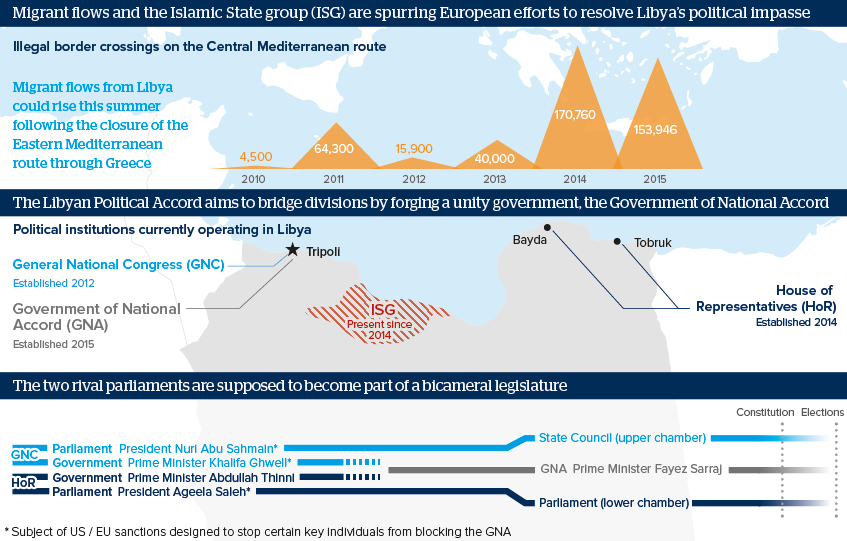Libya political agreement will need time to bear fruit
The West is more actively involved in solving Libya's political divisions

Source: Frontex, Oxford Analytica
Outlook
The proliferation of militias and governments in Libya has allowed ISG to establish a foothold in the country and has fostered a burgeoning people-smuggling industry. More than 450,000 people have crossed the Mediterranean since 2011 in unseaworthy vessels to reach Italian shores.
Having borne the brunt of these flows, Italy has led efforts to create a single government in Libya. Its foreign minister, Paolo Gentiloni, was the first foreign official to visit Libya to pledge support to the UN-backed Government of National Accord (GNA).
The unity government has progressed better than expected: it has received the support of key institutions, such as the Central Bank of Libya and the Petroleum Facilities Guard. However, the government is far from establishing the rule of law that will tackle the issue of people smuggling, or unify Libya's factions against ISG.
Impacts
- ISG has lost Derna and is poised to lose Benghazi to controversial General Khalifa Haftar's Libyan National Army.
- However, coordinated action against the group in its Sirte stronghold is unlikely without broader political agreement.
- Agreeing on Haftar's position in the state apparatus will be crucial for the GNA to extend its authority to the east.
- Yet this will be difficult given the animosity against Haftar in western Libya.
See also
- Divisions plague Libya's financial institutions - Dec 29, 2016
- Unity deal reflects Western goals, not Libyan accord - Dec 18, 2015
- More graphic analysis